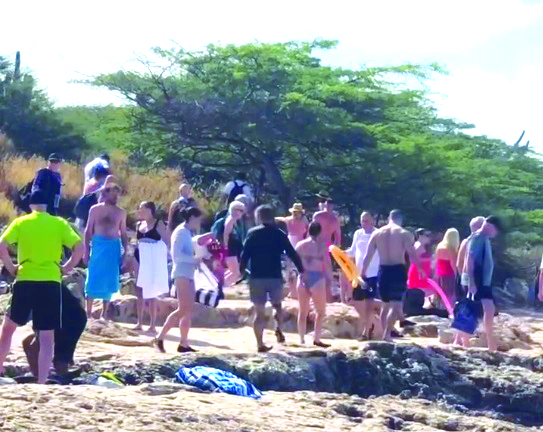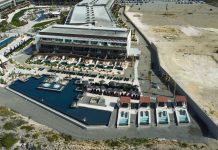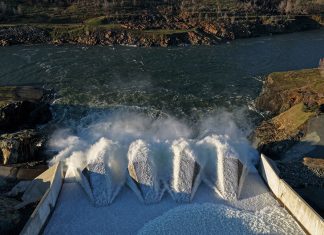ORANJESTAD – Today we celebrate World Tourism Day! As a tourism-dependent island, we want to start by thanking our guests for choosing to visit and love our One Happy Island. Since Aruba started developing its tourism industry in the 1950s, with a more focused effort at the end of the ‘80s, we have been building a unique way of life together with Aruba’s visitors.
According to the Aruba Tourism Authority, it was in 1947 when the Aruba Tourist Commission was established to promote and direct tourism to the island. IN 1953, the commission officially became the Aruba Tourist Board, with only two employees. “By 1984, tourism was a well-developed sector of the Aruban economy, second only to the oil-refining industry in terms of its contribution to the gross domestic product,” according to A.T.A. “In 1985, the closing of the oil refinery, resulting from declining market value and cutbacks in the supply of Venezuelan oil, had a great impact on the Aruban economy. In 1986, Aruba achieved its Status Aparte, withdrawing from the Netherlands Antilles and becoming an autonomous entity within the Kingdom of the Netherlands. It was within this context that tourism took over as the strongest economic force of Aruba.”
The theme of this year’s World Tourism Day is “Tourism and Sustainable Transformation.”
Those who have been visiting Aruba for a long time have seen it develop and transform throughout the years. In some aspects, development pushed certain important interests to the side – like nature conservation, social cohesion and the well-being of the local population – In favor of strengthening the economic pillar of the island.
In recent years, this lack of balance has come to the forefront, with nature and civil society organizations calling on the local authorities to adapt tourism policy to match the wishes of the Aruban population.
Most Arubans treasure our tourism industry as our main economic pillar, and also as a way to connect and interact with the rest of the world. However, the popularity of the island came with the downside of “mass tourism,” overcrowding favorite spots and gentrifying a few others.
Meanwhile, authorities are struggling to balance the economic and social needs of the island. While attempting to build more sustainably, they are falling short in regulation and enforcement to truly protect our fragile ecosystems. An ongoing issue is for example the ATV/UTV tours. Many locals have expressed displeasure with these tours, as they disrupt daily life in residential zones and put enormous pressure on fragile flora and fauna. Another example is access to the beach. In Aruba, all beaches are public – even those in front of hotels – which means that locals (and visitors!) have free access to any beach. However in practice, overcrowding and gray areas mean that locals have less room to enjoy. For example, while the beach is public, any chairs or palapas on the beach are private property of the hotels. This means that locals cannot use the beach if there is no space free of chairs or palapas, which sometimes results in uncomfortable or awkward situations.
In 2023, local activist Nigel Maduro turned heads when he started a graffiti campaign with the slogan, “No More Hotels.” In an interview, Maduro said that his activism was inspired by three events which made him realize the damage that was being done to the ecosystems and oceans of his childhood, and what he considers the “unjust treatment” locals receive when trying to access Aruba’s nature. “These were my roots,” he said. “And they just disappeared.”
His actions were polarizing, but started a very important conversation for Aruba: How can we keep our economic development depending on tourism, while protecting our island, nature and way of life for the future generations?
In the meantime, the tourism industry itself is starting some campaigns to try to alleviate the tension. A.T.A. is encouraging our guests to focus on sustainability and respect for nature and the local way of life during their stay in our island, with promotional campaigns like the movie, “When You Love Aruba, It Loves You Back.” For now, we can hope Aruba will manage to strike that golden balance between economic development and sustainability.
















